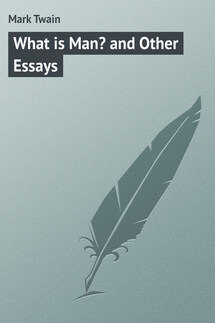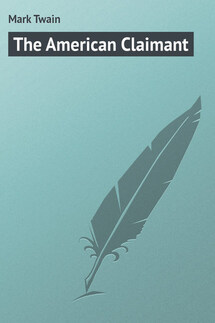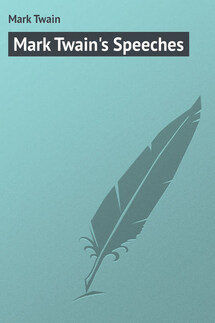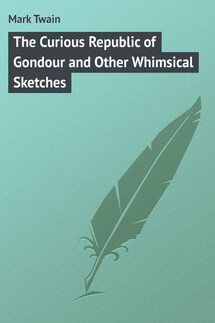Chapters from My Autobiography - страница 9
“At – last! I’ve found one of you, anyway! Who was the other girl?”
But she drew the line there. She wouldn’t tell me.
IV
… But it was on a bench in Washington Square that I saw the most of Louis Stevenson. It was an outing that lasted an hour or more, and was very pleasant and sociable. I had come with him from his house, where I had been paying my respects to his family. His business in the Square was to absorb the sunshine. He was most scantily furnished with flesh, his clothes seemed to fall into hollows as if there might be nothing inside but the frame for a sculptor’s statue. His long face and lank hair and dark complexion and musing and melancholy expression seemed to fit these details justly and harmoniously, and the altogether of it seemed especially planned to gather the rays of your observation and focalize them upon Stevenson’s special distinction and commanding feature, his splendid eyes. They burned with a smouldering rich fire under the penthouse of his brows, and they made him beautiful.
I said I thought he was right about the others, but mistaken as to Bret Harte; in substance I said that Harte was good company and a thin but pleasant talker; that he was always bright, but never brilliant; that in this matter he must not be classed with Thomas Bailey Aldrich, nor must any other man, ancient or modern; that Aldrich was always witty, always brilliant, if there was anybody present capable of striking his flint at the right angle; that Aldrich was as sure and prompt and unfailing as the red-hot iron on the blacksmith’s anvil – you had only to hit it competently to make it deliver an explosion of sparks. I added—
“Aldrich has never had his peer for prompt and pithy and witty and humorous sayings. None has equalled him, certainly none has surpassed him, in the felicity of phrasing with which he clothed these children of his fancy. Aldrich was always brilliant, he couldn’t help it, he is a fire-opal set round with rose diamonds; when he is not speaking, you know that his dainty fancies are twinkling and glimmering around in him; when he speaks the diamonds flash. Yes, he was always brilliant, he will always be brilliant; he will be brilliant in hell – you will see.”
Stevenson, smiling a chuckly smile, “I hope not.”
“Well, you will, and he will dim even those ruddy fires and look like a transfigured Adonis backed against a pink sunset.”
There on that bench we struck out a new phrase – one or the other of us, I don’t remember which—“submerged renown.” Variations were discussed: “submerged fame,” “submerged reputation,” and so on, and a choice was made; “submerged renown” was elected, I believe. This important matter rose out of an incident which had been happening to Stevenson in Albany. While in a book-shop or book-stall there he had noticed a long rank of small books, cheaply but neatly gotten up, and bearing such titles as “Davis’s Selected Speeches,” “Davis’s Selected Poetry,” Davis’s this and Davis’s that and Davis’s the other thing; compilations, every one of them, each with a brief, compact, intelligent and useful introductory chapter by this same Davis, whose first name I have forgotten. Stevenson had begun the matter with this question:
“Can you name the American author whose fame and acceptance stretch widest in the States?”









